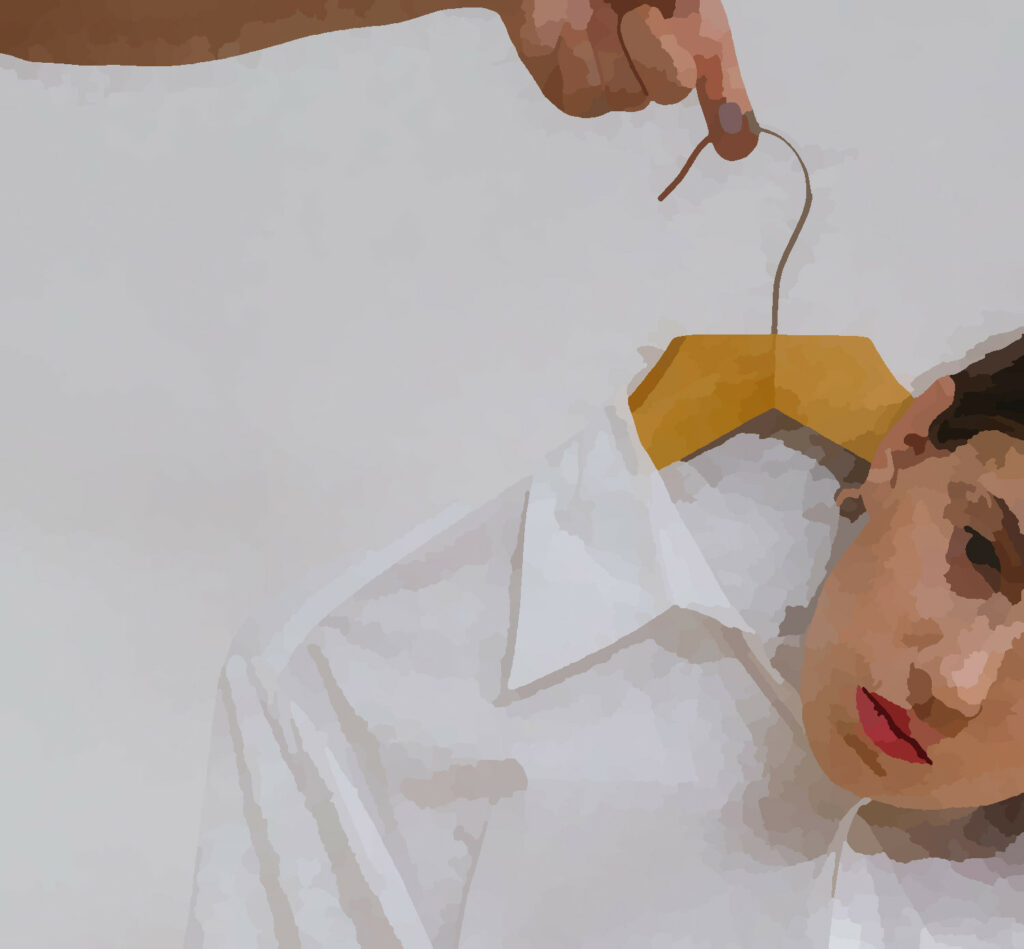Being in a relationship can be a wonderful experience, but it’s important to be aware of potential red flags to ensure you don’t lose a large chunk of your life to the wrong person.
One significant issue you might encounter unexpectedly is a controlling boyfriend. And it’s significant because these types of guys know how to sweep you off your feet in the beginning!
Once a controlling boyfriend has sucked you in early on, it creates a kind of “staying momentum” that keeps you in the relationship even though it’s highly toxic.
It’s important to know that a controlling partner can jeopardize not only your emotional well-being but also your sense of freedom and autonomy.
Recognizing the warning signs of a controlling boyfriend can help you to address the situation in its early stages and seek the guidance you need.
Controlling behavior may manifest in various ways, ranging from subtle manipulation to explicit demands.
Some common signs of a controlling partner are:
- Isolating you from friends and family
- Constantly monitoring your phone and communication, or
- Expressing distrust in your choices.
Being attentive to these warning signs can empower you to take the necessary steps to protect your well-being and maintain your independence in the relationship.
While it’s essential to address these issues head-on, remember that change begins with self-awareness and communication.
Stay informed, stay vigilant, and most importantly, trust yourself. Your intuition can guide you to make the best choices for your own happiness and well-being.

The Nature of a Controlling Relationship
Understanding Abuse
A controlling relationship can take many forms, but it often revolves around one person asserting power and control over the other person.
Abuse can manifest as emotional, physical, or even financial control, with the goal of maintaining the power dynamic in the relationship.
Emotional abuse is a common aspect of controlling relationships and can be just as damaging as physical abuse.
This type of abuse may include manipulation tactics like gaslighting, where the abuser manipulates the victim into doubting their own thoughts, feelings, and perceptions.
This can lead to the victim feeling confused, helpless, and unsure of what is real or not in their relationship.
Toxic relationships often involve some form of manipulation, and it’s important to recognize the signs. In a Psychology Today article, some key signs of a controlling partner include isolating you from friends and family, making decisions for you, and using conditional love as a tool to control you.
By understanding these signs, you can better protect yourself from falling into a toxic relationship.
Physical abuse, although it might be more visible, is still a type of control.
An abuser may use physical force to coerce their partner into submission, and this can lead to serious injury or even death.
While every relationship might have occasional disagreements, frequent episodes of physical violence are most certainly not healthy or normal.
Remember, in a healthy relationship, both partners should have autonomy and the freedom to make their own decisions. Here are some ways to identify a controlling relationship:
- Isolation: If you’re being isolated from your friends and family, it’s a warning sign. Abusers usually want to cut off their victims from any support system, making it easier for them to control their partner.
- Financial control: A controlling partner may try to control your finances in order to limit your independence. This can involve monitoring your spending, controlling access to your bank account, or even making you entirely financially dependent on them.
- Stalking: A toxic boyfriend might stalk you, either in person or online, invading your privacy and monitoring your every move.
In conclusion, it’s essential to identify and understand the signs of a controlling relationship.
If you’re in a toxic relationship, seek help from friends, family, or professionals to help guide you towards a healthier, more balanced relationship.
Remember, your happiness and mental well-being should always be a priority.
Recognizing A Man’s Manipulative Tactics
As a dating and relationship coach with 20 years of experience, I’ve seen many controlling behaviors that can be red flags in a relationship. Here are some common manipulative tactics used by controlling boyfriends, and how you can recognize them.
#1: Emotional Abuse
Emotional abuse often goes unnoticed, as it can be discreet and harder to identify than physical abuse. It may involve name-calling, belittling, or constantly questioning your thoughts or feelings. If your boyfriend makes you feel small, stupid, or unworthy, you may be experiencing emotional abuse.
#2: Gaslighting
Gaslighting is a form of manipulation in which your boyfriend will try to make you doubt your own feelings, thoughts, and perceptions. He might deny saying or doing something, or claim that you’re exaggerating or being overly sensitive. Gaslighting can lead to a gradual erosion of trust and self-confidence.
#3: The Blame Game
A controlling boyfriend may try to shift the blame for his mistakes or shortcomings onto you. As a result, you may find yourself constantly apologizing for things you didn’t do or feeling responsible for your partner’s problems.
#4: Criticizm
Constant criticism can be another sign of a controlling relationship. Your boyfriend may criticize your appearance, beliefs, or choices in an attempt to wear down your self-esteem and make you more reliant on him for validation.
#5: Deliberately Inducing Guilt
Guilt is a powerful tool for manipulation. A controlling boyfriend might use guilt trips to get you to agree to his demands or change your behavior. You might feel guilty for wanting to spend time with friends or pursuing your hobbies, as he makes it seem like you’re neglecting him or being selfish.
#6: Threatening You
Threats can be both subtle and obvious. A controlling boyfriend may use threats of physical violence, end the relationship, or expose your secrets to coerce you into submission. He might also try to control you by threatening your loved ones.
#7: Constant Jealousy
One of the clear signs of a controlling boyfriend is indiscriminative jealousy. What that means is that he is jealous over everything and, well, nothing.
If you so much as talk to another man, he gets jealous, and not only jealous – he doesn’t mind making you pay for simply talking to another guy.
Basically, his jealous feelings are not just normal or controllable, they are off the charts and he doesn’t know when he ought to be jealous or not, so he’s naturally jealous of absolutely everyone and everything in your life.
Because of his inability to control this, he’ll try to force you not to speak to other guys, or give you the evil eye if you do.
He’ll make sure you have to pay for betraying him back home that night (even if you haven’t betrayed him!)
Recognizing these manipulative tactics is the first step in breaking free from a controlling relationship. Be aware of your fundamental human rights and stand up for yourself.
Embrace your self-worth and reach out to supportive friends and family members who can help you navigate the challenges of a manipulative relationship.
The Negative Effects on Your Personal Life
When dealing with a controlling boyfriend, there are several significant impacts on your personal life that can arise. Here’s a breakdown of how it can affect you.
Being in a controlling relationship often triggers anxiety due to the constant tension and fear of not meeting your partner’s expectations or demands.
The unpredictability of the situation can result in a steady stream of worry and stress, making it difficult for you to relax and enjoy your life.
Depression is another common consequence. As your boyfriend’s controlling behavior persists, your self-esteem may take a hit, and you can begin to feel trapped. This sense of powerlessness can lead to feelings of hopelessness, sadness, and despair, which might ultimately result in depression.
Low self-esteem often accompanies controlling relationships. As your boyfriend dictates every aspect of your life, you may start to feel like you lack the ability to make your own decisions. This constant undermining of your confidence can erode your self-esteem over time, making you feel as though you’re not good enough or that you can’t take care of yourself without his input.
Isolation is a significant effect of controlling relationships. One of the most striking signs of a controlling boyfriend is their attempt to keep you away from your friends and family. This could start with subtle complaints about the people in your life, but it can escalate to trying to stop you from seeing them altogether. This isolation tactic aims to make you more dependent on your boyfriend and susceptible to their influence.
Even though preserving independence is essential for healthy relationships, a controlling boyfriend will try to obliterate it.
By micromanaging various aspects of your life, from your clothing choices to your daily schedule, he seeks to assert his dominance. This can make it extremely challenging to maintain a sense of individuality and freedom.

What Is The Impact on Your Social Circles?
A controlling boyfriend can greatly affect your relationships with your friends and family, causing tension and eventual isolation.
Personally, I have seen the impact of controlling behavior on social circles firsthand.
One common tactic a controlling boyfriend may use is to isolate you from your friends and family.
They might subtly suggest that your friends are not good for you or try to create conflicts between you and your loved ones.
This can lead to you distancing yourself from the people who care about you the most, leaving you dependent on your partner for companionship and support.
Social media can also play a role in the controlling dynamic. Your partner may monitor your social media accounts, dictating what you can and cannot post online.
They may prevent you from connecting with certain friends or liking specific posts, causing friction in your friendships.
This type of behavior can create a sense of paranoia, making you feel like you always need to be cautious of what you do online. As a result, your relationships with your friends can slowly deteriorate.
In addition, controlling boyfriends can dictate your attendance at social events, such as happy hour with your coworkers or get-togethers with friends
. They may make you feel guilty for wanting to spend time with others or try to convince you that you don’t need to engage in these types of activities.
This can lead to missed opportunities to maintain and develop connections with the people around you.
It’s essential to recognize these signs of control and take steps to regain your independence and re-establish your connections with friends and family.
Conversations with your partner about how their behavior affects your social life can help in some cases, but always prioritize your safety and well-being.
Remember, maintaining a healthy balance between your personal relationships and romantic relationship is crucial for a happy, fulfilling life.
Don’t let a controlling boyfriend affect your connection with the essential people around you.
The Role of Insecurity in cONTROLLING bEHAVIOR
Insecurity plays a significant role in controlling behavior, often stemming from low self-confidence or fear of abandonment. When someone feels insecure in a relationship, they might become more controlling as a way to cope. Some signs of insecurity are jealousy, paranoia, and constant self-doubt. Here’s a closer look at how these insecurities can manifest in a controlling boyfriend.
Jealousy: A shadow of insecurity, jealousy often drives controlling behavior. A boyfriend who is insecure about his relationship might feel threatened by other people in your life, leading to possessiveness, mistrust, and even accusations of cheating. This jealousy can make you feel suffocated and unable to maintain healthy relationships and friendships outside the romantic relationship.
Fear of Abandonment: An underlying fear of abandonment can contribute to controlling behavior as well. If your boyfriend is anxious about losing you, he might feel the need to control your actions and decisions to prevent this from happening. This fear can drive him to isolate you from your support network, so you rely on him more and reduce the risk of you leaving him.
Paranoia: Insecurity can also manifest as paranoia in a controlling boyfriend. He may become obsessed with the thought of you betraying or deceiving him. This can lead to excessive monitoring of your activities, continually questioning your motives, and checking your phone or social media without permission.
Insecurities: Insecurities about self-worth or appearance can contribute to controlling behavior in a boyfriend as well. He might become overly critical and nitpick your choices or behaviors to emphasize your flaws or make you feel self-conscious. By doing so, he may feel more in control and seek validation that he is worthy of being with you.
Remember that recognizing these signs of insecurity and controlling behavior can help you make informed decisions about your relationship’s health.
Open communication, seeking help, and setting boundaries are vital steps to address these issues and ensure a healthy and loving relationship.
Beware of Overprotectiveness
As someone who dated a controlling man for 7 years, I can attest that overprotectiveness is a concerning sign when it comes to boyfriends.
It’s essential to strike a balance between caring and trusting your partner.
One crucial aspect of overprotectiveness is the constant monitoring of your privacy.
If your boyfriend always wants to know your whereabouts and keeps checking in on you, it could be a red flag.
While it may seem caring at first, this behavior can become suffocating and intrusive over time. In a healthy relationship, both partners should be able to trust each other and respect their individual space.
Overprotective boyfriends may also try to micromanage different aspects of your life. They might insist on deciding where you go, who you see, and what you wear. This controlling behavior can be incredibly frustrating and may stem from a desire to maintain power over you.
Keep an eye out for these warning signs and consider whether your boyfriend is genuinely looking out for you or just attempting to control you.
Here are some quick tips on how to deal with an overprotective boyfriend:
- Establish boundaries early in the relationship
- Communicate openly about your feelings and concerns
- Seek support from friends or a professional counselor
For more resources, see this see this great article by The Feminine Woman on the top early Signs Of A Controlling Man.
Remember, a loving partner should respect your autonomy and trust your decisions. Don’t be afraid to address these issues in your relationship before they become a more significant problem.

Domineering Personality Traits
As a dating and relationship coach, I’ve seen plenty of situations where women find themselves with a controlling boyfriend.
One of the key factors contributing to this issue is the presence of domineering personality traits in the person they’re dating.
Here, I’ll go over some common traits of domineering individuals and how they manifest in relationships.
He’s always right: A dominant boyfriend may never admit they’re wrong and will always insist they know best. This may lead you to question your own instincts, causing conflict within yourself. Remember, it’s essential for you and your partner to trust and respect each other’s perspectives.
Narcissistic personality disorder: People with narcissistic personality disorder often demand constant admiration and struggle to empathize with others.
If your partner exhibits these traits, it can contribute to a controlling dynamic in your relationship, leading to feelings of frustration and emotional exhaustion.
He’s always making decisions for you: If your partner is making decisions for you without allowing you to voice your opinions or asserting their preferences as the ultimate right choice, it signifies a controlling relationship.
It’s essential for both individuals in a relationship to have an equal say in decision-making.
Some other signs of a domineering personality include:
- Manipulating you to get their way
- Belittling your thoughts, feelings, and opinions
- Dictating how you spend your time
- Constantly keeping tabs on your whereabouts
In situations like these, it’s important to maintain your sense of self and remember that a healthy relationship should be built on mutual respect and communication.
If you’re experiencing any of these warning signs, consider discussing the issue with your partner or seeking professional guidance to navigate this difficult time.

Getting Professional Help
If you believe you’re in a controlling relationship, it’s important to seek professional help from a qualified therapist or relationship counselor. They can assist in navigating the complex emotions and dynamics of the situation.
One reason to seek professional help is that a controlling partner may exhibit signs of codependency.
This means that they rely heavily on you for their emotional needs, which can lead to unhealthy behaviors that reinforce control.
A therapist or counselor can help you and your partner identify the root causes of the codependency and work toward developing healthier ways of relating.
Another benefit of getting professional help is the support it provides. Being in a controlling relationship can be a lonely and isolating experience, and trying to break free on your own can be daunting. A therapist or counselor can offer guidance, understanding, and empathy, acting as a supportive ally in your journey towards a healthier relationship.
In addition to one-on-one counseling, there are also various support groups available for those dealing with controlling partners.
These groups can be a valuable resource for sharing experiences, learning from others who have been in similar situations, and developing strategies to cope with or leave a controlling relationship.
To find a suitable therapist or relationship counselor, you may want to consult:
- Professional directories, such as Psychology Today’s therapist directory
- Local health centers and family service organizations
- Recommendations from friends, family, or medical professionals
It’s important to find a therapist or counselor you feel comfortable and safe with, as this will facilitate progress and healing. Remember that taking this step toward getting professional help is a demonstration of your bravery and commitment to your own well-being.
Frequently Asked Questions
How can I recognize manipulative behavior in my boyfriend?
Manipulative behavior can be quite subtle, but there are certain signs you can watch out for. Your boyfriend may be manipulative if he frequently guilt trips you, or makes you feel responsible for his emotions. This can include blaming you for any issues in the relationship or refusing to take responsibility for his own actions. You might also find that he is overly critical of you, or that he keeps important information from you to maintain power in the relationship.
What are the common signs of possessiveness in a relationship?
Some common signs of possessiveness include your partner wanting to be involved in all aspects of your life, demanding to know your whereabouts, and needing constant reassurance about your commitment to the relationship. A possessive boyfriend may also try to isolate you from friends and family, or become very jealous and suspicious over seemingly innocent interactions with others 1. He might even attempt to control your appearance, social media presence, or other personal aspects of your life.
How can I distinguish between caring and controlling actions?
Caring actions stem from a genuine desire to support your well-being and happiness, whereas controlling actions aim to manipulate or enforce a certain behavior. An example of a caring action might be your partner encouraging you to attend a social event with friends, even if they can’t make it themselves. A controlling action would be your partner forbidding you from attending the event altogether. The key difference is in the level of freedom and autonomy you maintain in your relationship.
In what ways can control issues manifest in relationships?
Control issues can manifest in various ways, ranging from overt attempts at domination to subtle emotional manipulation. Your boyfriend may become overly critical of your decisions, constantly tell you how to act or behave, or insist that his way of doing things is always the right way2. In more extreme cases, control issues can escalate into verbal or physical abuse.
What are some red flags indicating a dominating partner?
Red flags indicating a dominating partner may include an unwillingness to compromise, excessive criticism, and a lack of respect for your personal boundaries. Domineering partners often believe that only they are capable of making sound decisions in the relationship, and will undermine your judgment or belittle your choices. They may also become increasingly jealous and possessive, making you feel guilty for spending time with others or pursuing your own interests3.
How can I differentiate between a healthy relationship and a controlling one?
A healthy relationship fosters mutual respect, trust, and communication. Both partners have the freedom to express themselves and make their own decisions, while maintaining a strong, supportive connection. In a controlling relationship, one partner dominates and manipulates the other, imposing their own beliefs, feelings, or behaviors on the relationship. If you find that your boyfriend’s actions are more geared toward controlling you than supporting your growth and happiness, it may be time to reassess the health of your relationship.






